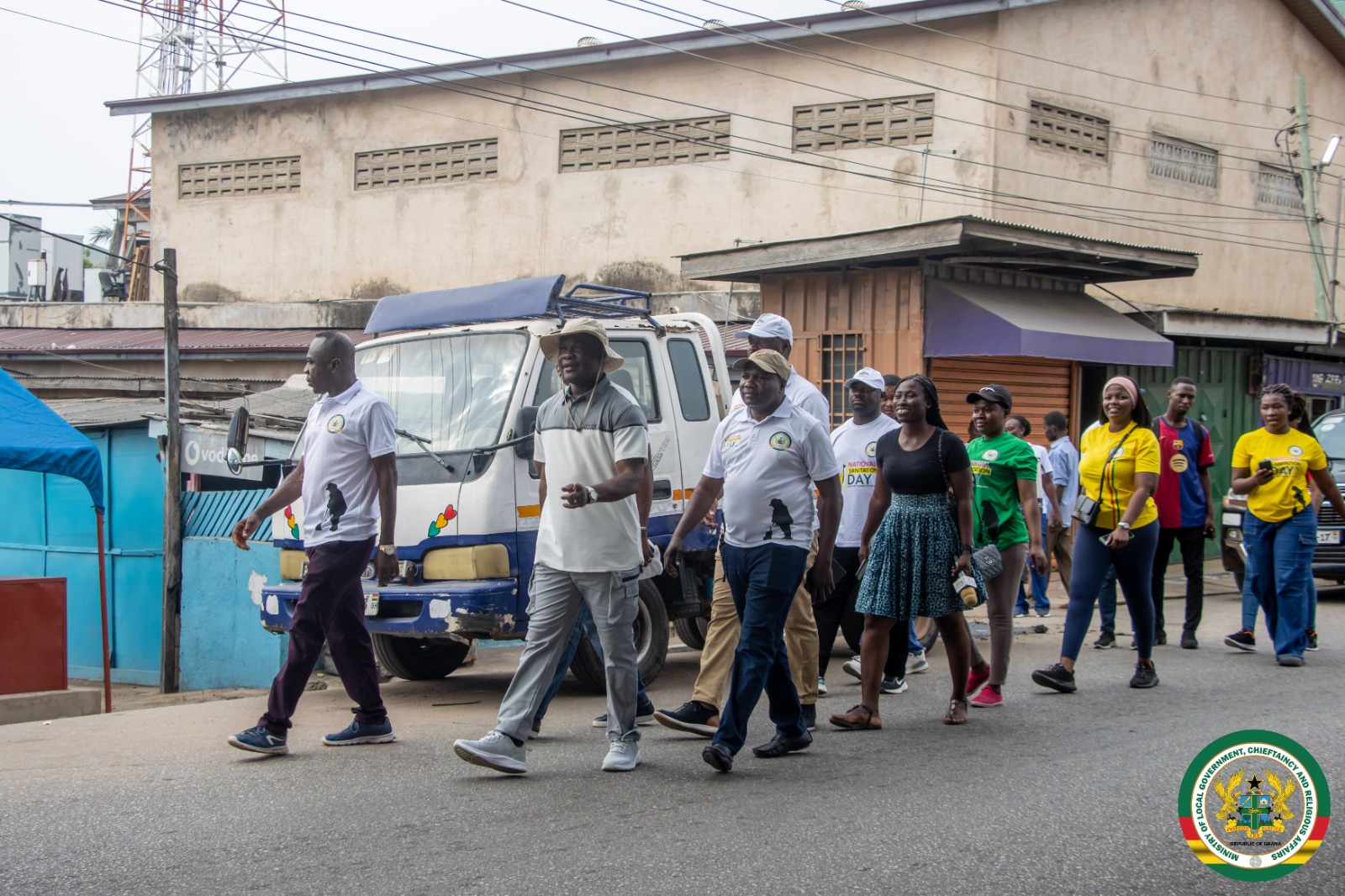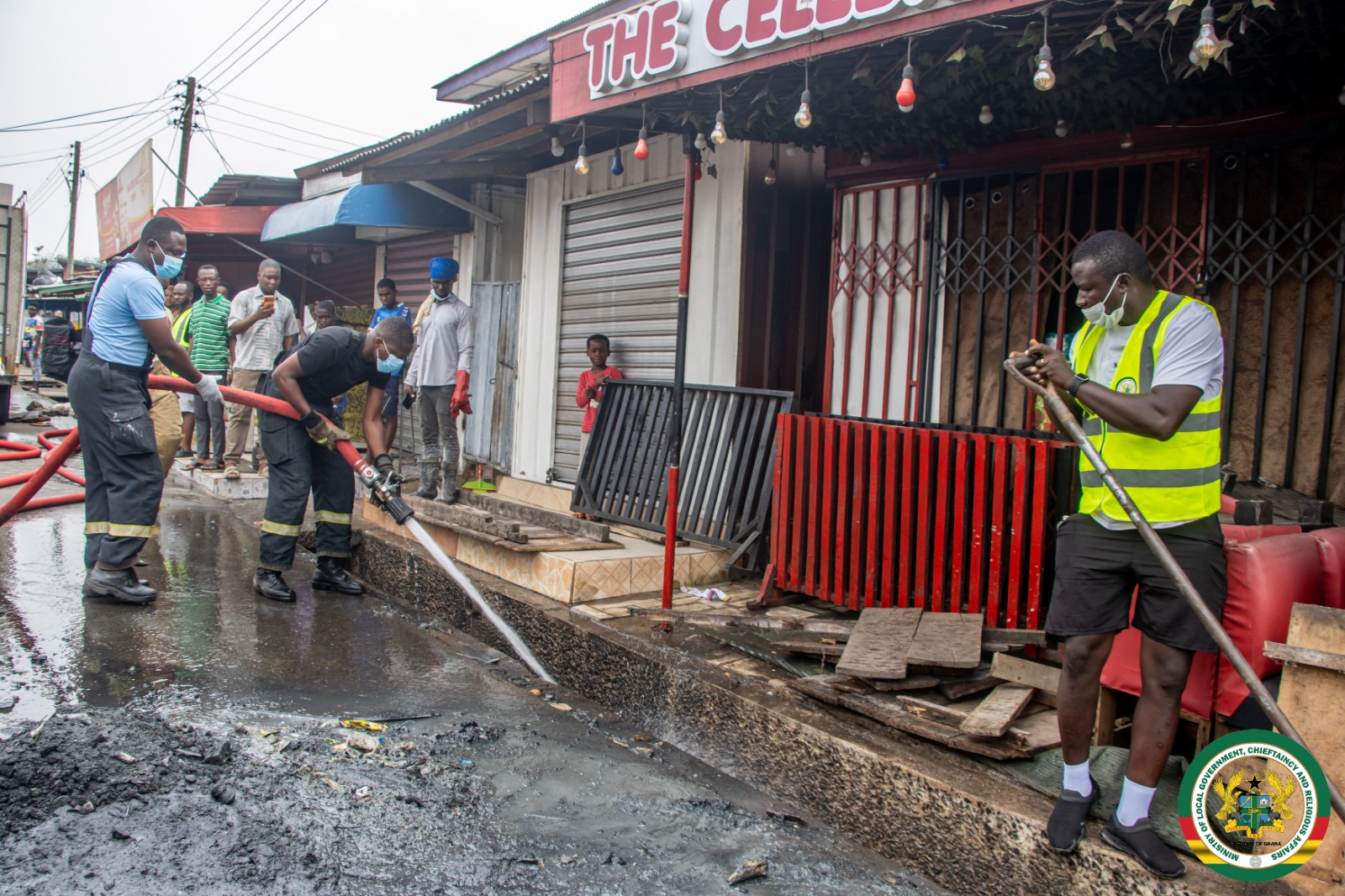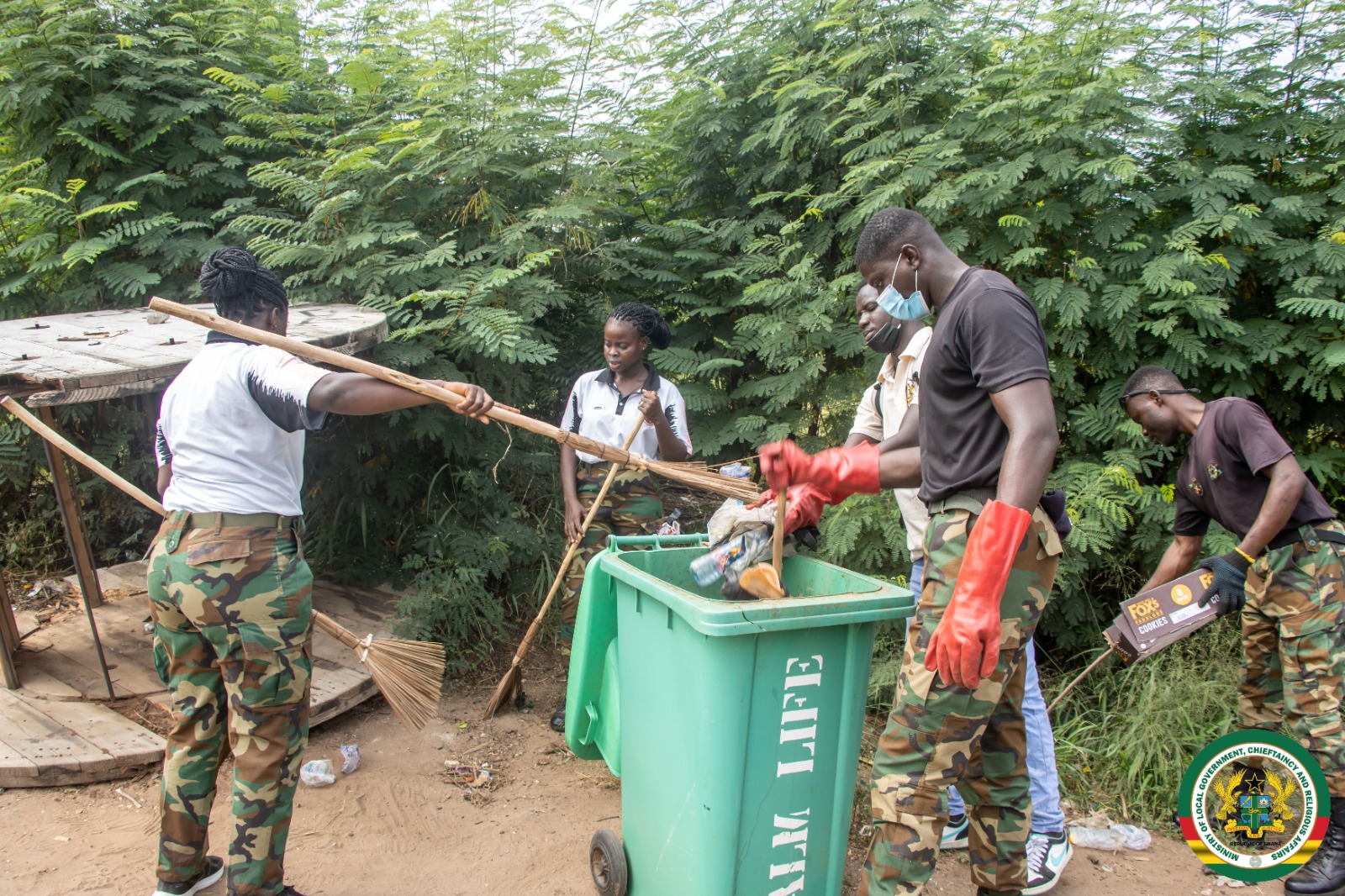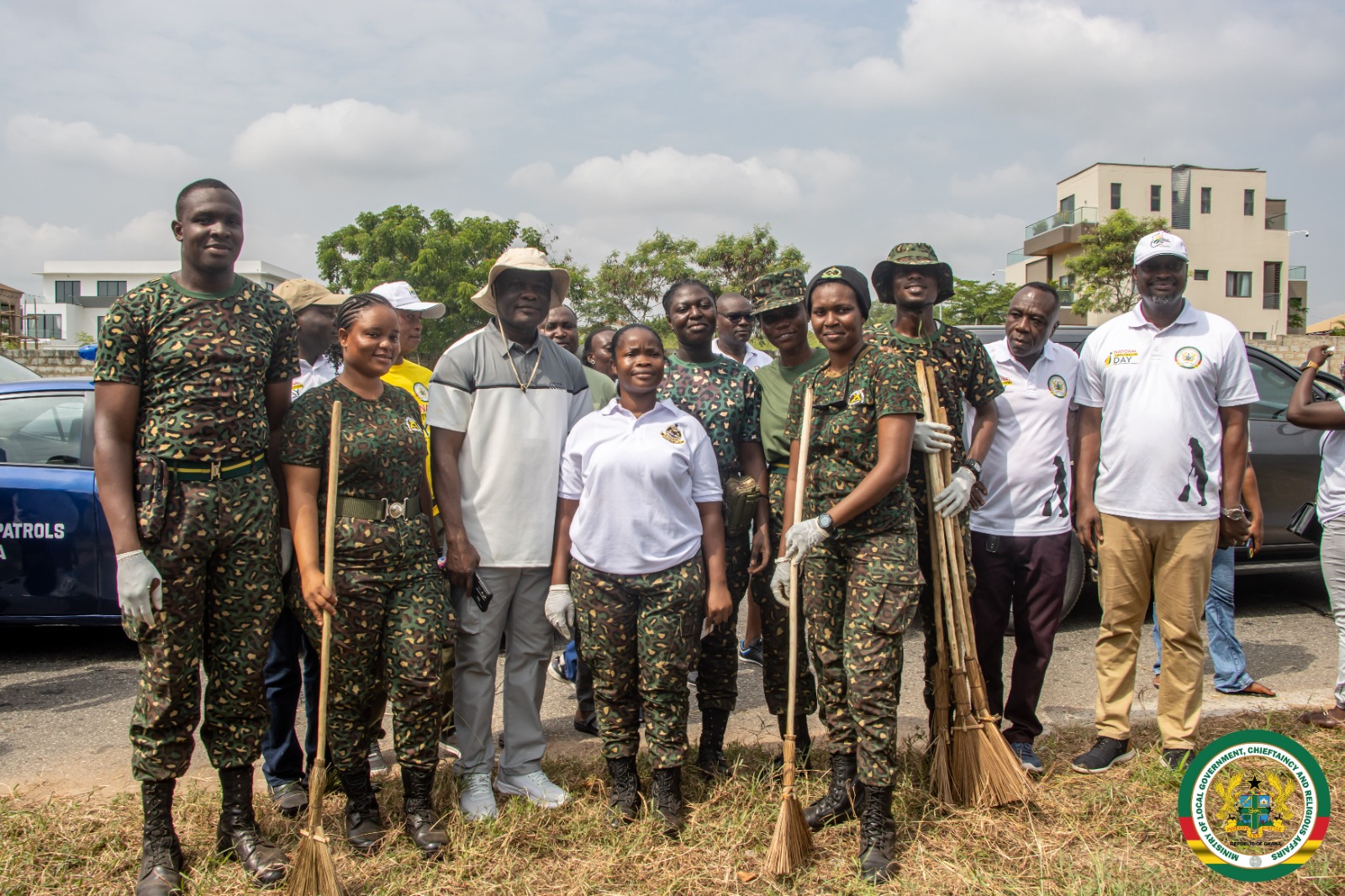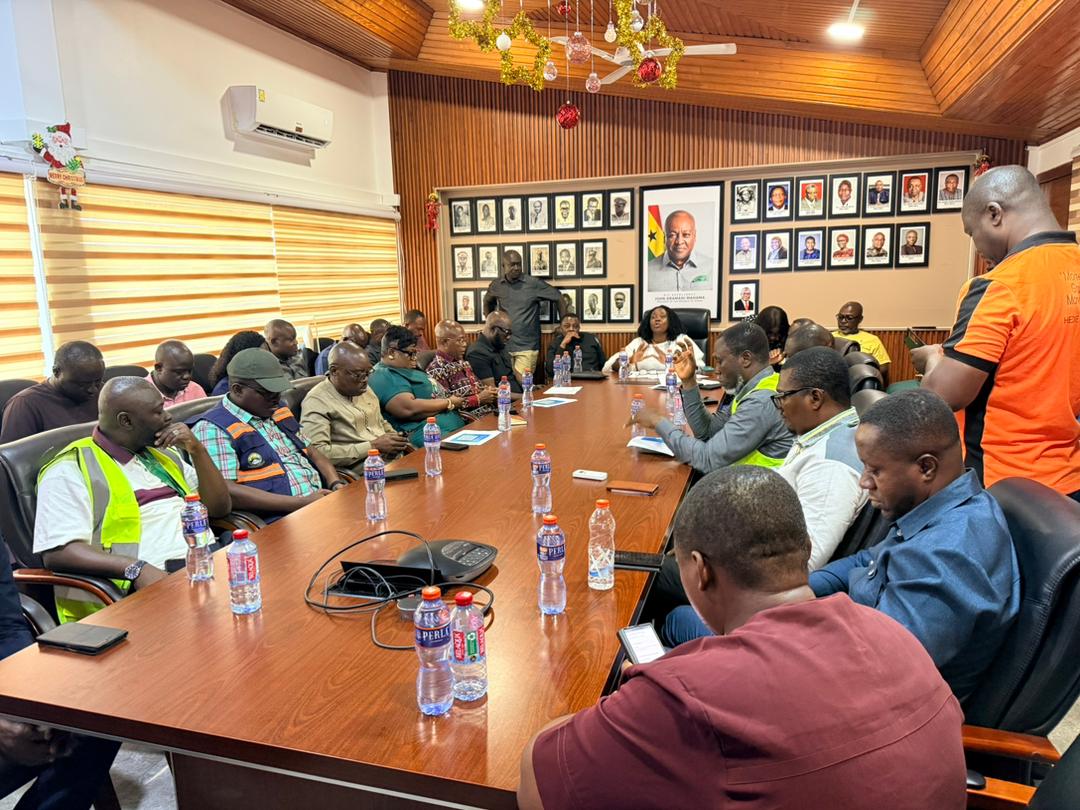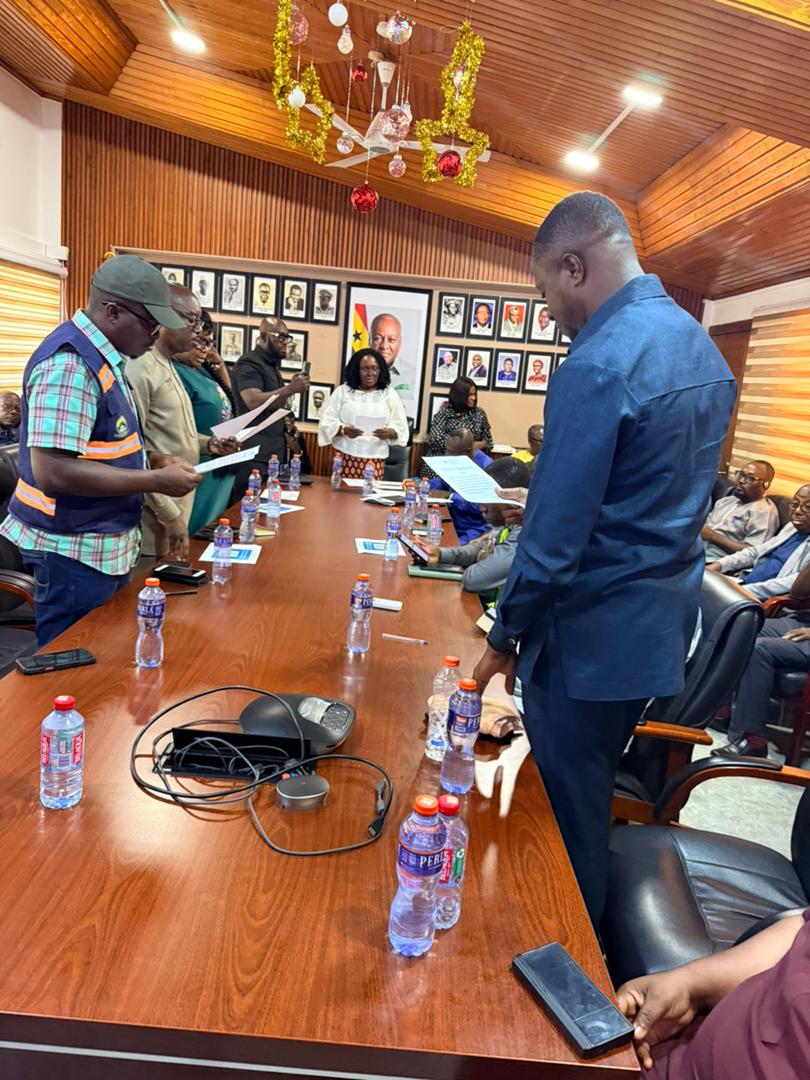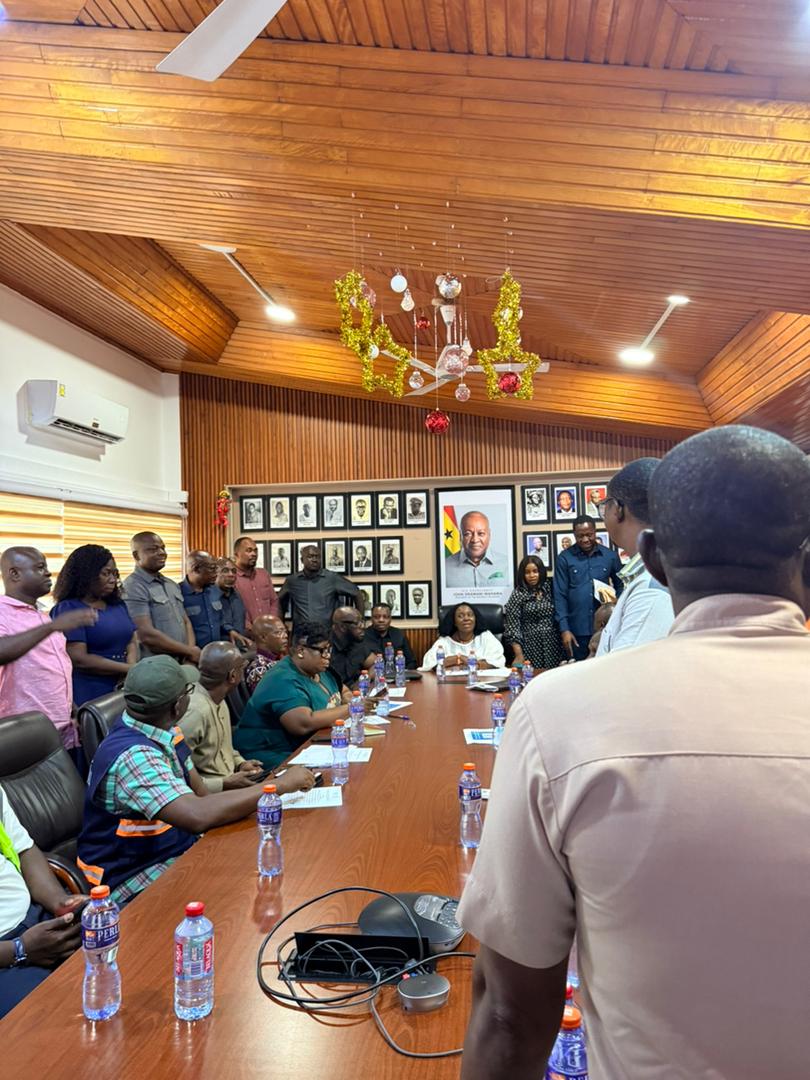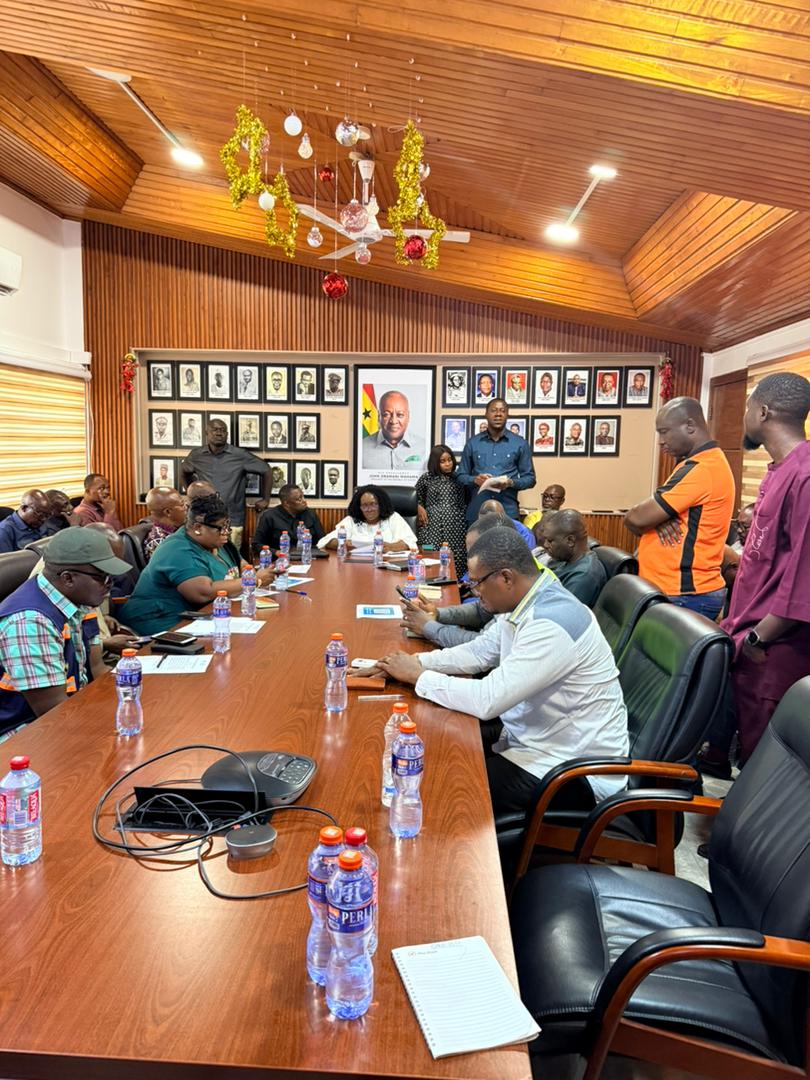Government has reaffirmed its commitment to mitigating the impacts of climate change through evidence-based planning, strengthened institutional collaboration, and improved environmental sanitation systems. This was highlighted at a stakeholder engagement on the Ghana Climate Atlas held in Accra on Monday, 4th January 2026, which brought together officials from the Ministry of Local Government, Chieftaincy and Religious Affairs and the Ghana Meteorological Agency (GMet).
The engagement was chaired by Mr. Samuel Seth Passah, Director for the Local Governance and Decentralisation Directorate at the Ministry, who led discussions on how climate data can guide local and national development planning, particularly in strengthening sanitation infrastructure, waste management systems, and climate-resilient urban services. He emphasized that reliable climate information is critical for planning drainage systems, managing flood-prone areas, and preventing sanitation-related health risks in vulnerable communities.
The GMet delegation, led by Maureen Abla Ahiataku, provided technical presentations and a detailed walkthrough of the Climate Atlas, demonstrating its potential to inform decisions on climate adaptation, risk mitigation, and environmentally sound sanitation planning.
The Ghana Climate Atlas is an ICT-based platform developed by GMet in collaboration with international partners. It integrates observed climate data with future projections and provides high-resolution information at national, regional, and local levels. This enables government agencies to anticipate climate risks and take proactive measures to protect vulnerable communities, including safeguarding sanitation facilities, water sources, and waste disposal systems from climate-induced hazards.
During the demonstration, the GMet team highlighted the Atlas’s ability to present climate trends and projections, including temperature changes, erratic rainfall, drought patterns, flooding risks, and coastal erosion. Participants noted that such detailed, Ghana-specific data is essential for strengthening disaster preparedness, urban planning, environmental management, and sanitation systems, particularly in flood-prone urban and peri-urban areas where poor sanitation can exacerbate disease outbreaks.
Ministry officials underscored the growing threat climate change poses to livelihoods, public health, food security, and local governance systems across the country. They noted that rising temperatures, erratic rainfall, flooding, and environmental degradation are already affecting communities, often overwhelming sanitation infrastructure, contaminating water sources, and increasing the risk of sanitation-related diseases.
In response to the presentations, the Ministry of Local Government, Chieftaincy and Religious Affairs reaffirmed its commitment to supporting climate mitigation and adaptation efforts at the local level. The Ministry assured the Ghana Meteorological Agency of its readiness to support the Climate Atlas initiative, particularly by facilitating its use within Metropolitan, Municipal and District Assemblies to improve climate-informed sanitation planning, strengthen environmental health management, enhance drainage and waste systems, and support capacity-building for local government officials.
The engagement concluded with a renewed commitment by the Ministry to strengthen collaboration with technical agencies to ensure climate considerations are fully integrated into local governance, environmental health, and sanitation planning. The Ministry emphasized that sustained government leadership, informed decision-making, and inter-agency coordination remain central to Ghana’s efforts to mitigate climate impacts, improve sanitation outcomes, and build resilient, healthy communities nationwide.
SOURCE: Sandra Owusu Asamoah
MLGCRA PR Unit

